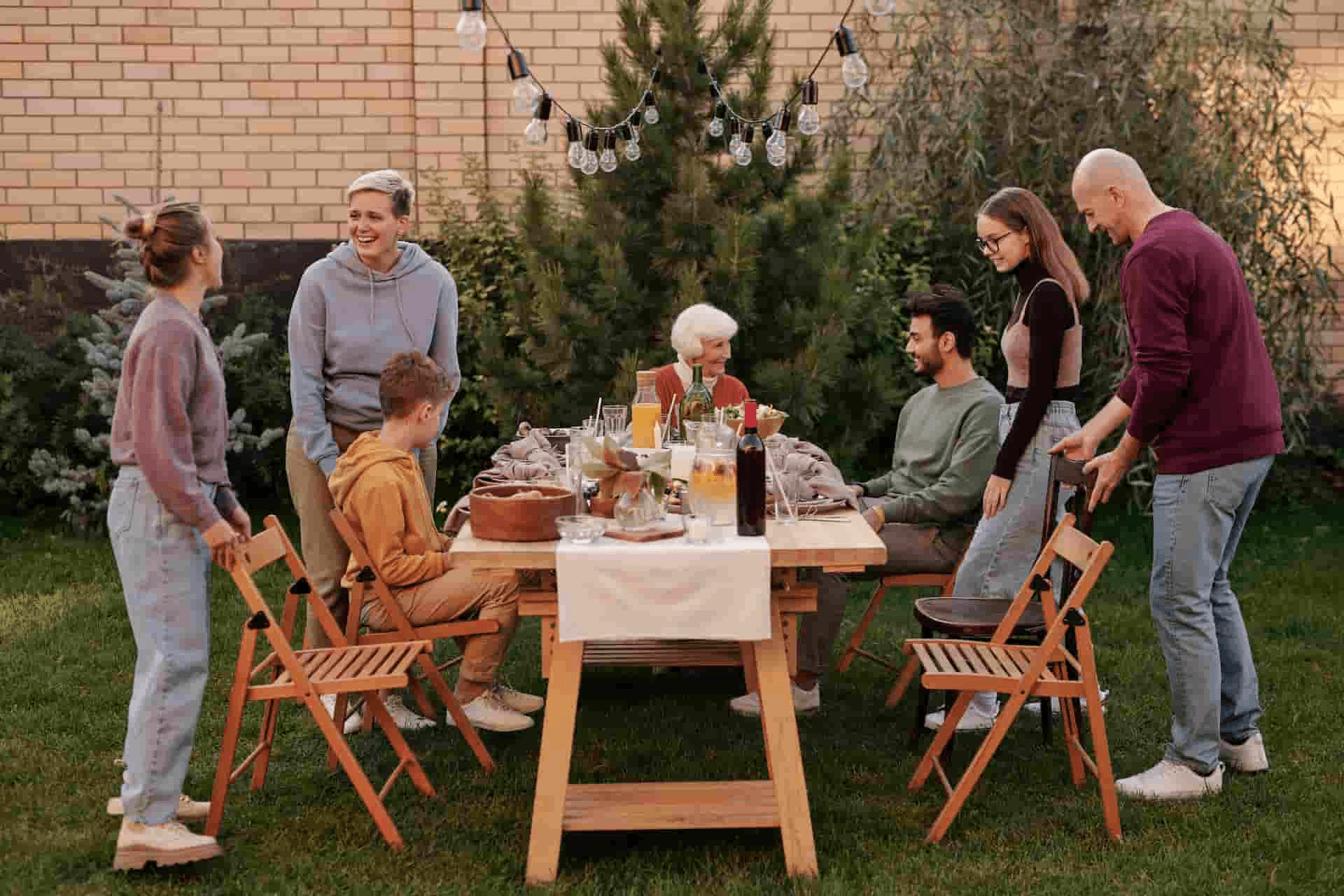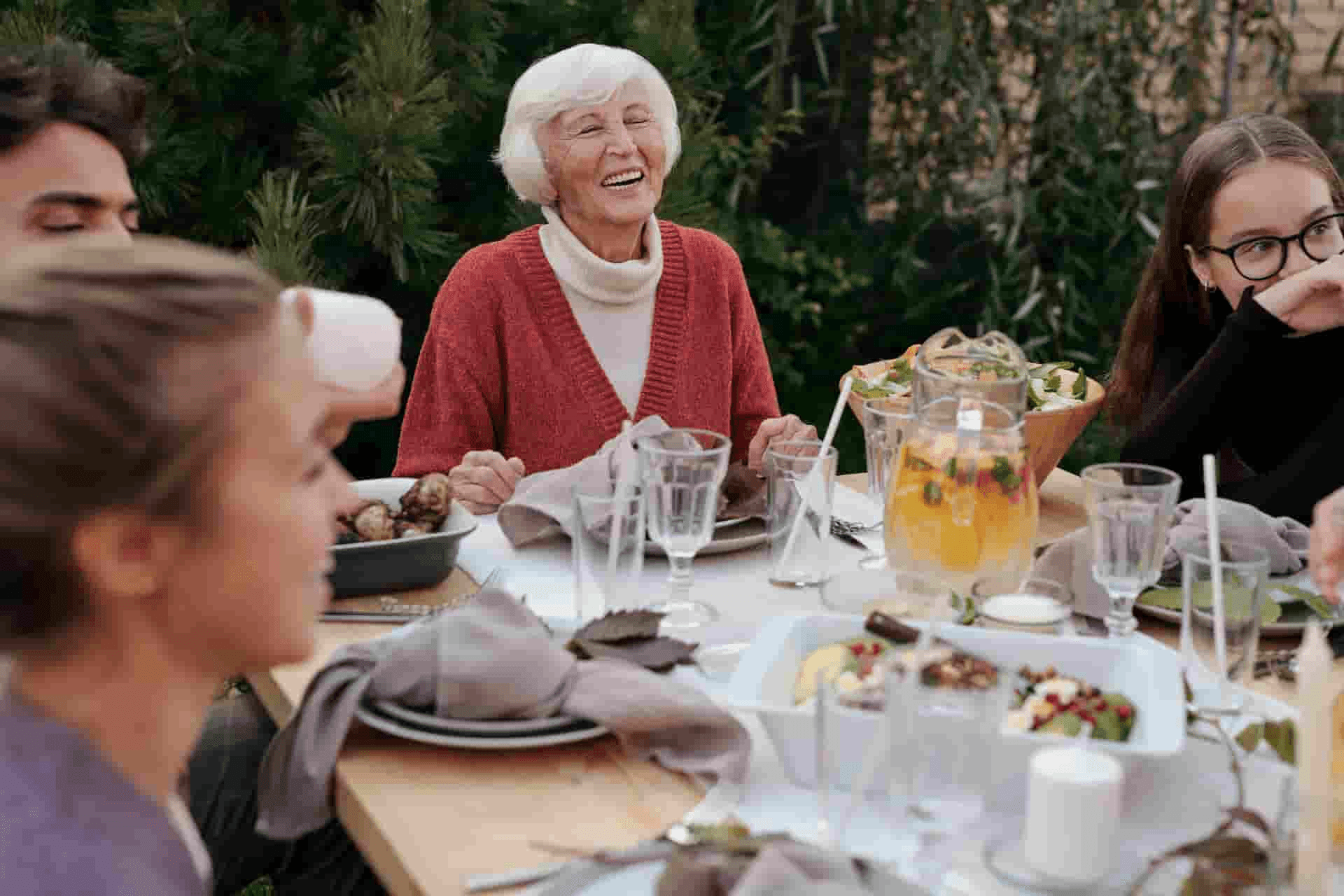“Other People Matter.” The Importance of Strong Social Connections.

Have you ever wondered what keeps us healthy and happy as we go through life?
This question is what the researchers of one of the world’s most prolonged studies, the Harvard Study of Adult Development, were trying to answer when they started their research in 1938. For decades, they tracked the lives of two different groups of men: Harvard sophomores and a group of boys from Boston’s poorest neighborhoods.
They followed the lives of these 724 men from their teenage years through their ’90s and, afterward, their children’s lives. Every two years, they asked them to fill out some questionnaires, interviewed them at home, and even asked for access to their medical records. In 2015, Robert Waldinger, the fourth director of this Harvard 75 years study, shared their findings in a TED Talk that went viral. His most important message: having strong social connections and good relationships keeps us healthier and happier as we go through life.
So, how can we live a happy life?
It turned out that the best predictor of who would grow into a happy, healthy octogenarian (someone who reaches age 80) at age 50 was not their cholesterol levels nor their blood pressure, but how satisfied they were in their relationships and having strong social connections. So, they realized that good relationships have a protective effect on our bodies and also on our brains since people in healthy relationships keep their memories sharper for longer.
Positive relationships are as crucial to physical, mental, and emotional well-being as eating healthy, exercising regularly, or getting enough sleep. Another landmark study showed that loneliness is a greater risk to our health than obesity, smoking, or high blood pressure. However, feeling lonely is always very personal. One can feel lonely while in a group or even in a long marriage, so the second big lesson is that it’s not the quantity but the quality of our relationships that matter for strong connections. In fact, it is the quality of our relationships that determines the quality of our life.
Why are strong social connections so good for our health?
Studies show that strong social connections are linked to an increased chance of longevity, a better immune system, less inflammation, and faster recoveries from disease. When you feel more connected to others, you are less vulnerable to anxiety and depression and have higher self-esteem, empathy, and trust toward others. In other words, meaningful relationships generate a positive social, emotional, and physical well-being spiral. Unfortunately, the opposite is also true, and those who lack social connectedness are more prone to suffer a decline in physical and psychological health and are susceptible to becoming further isolated.
Our brains are hardwired for connection. We have both a biological and a psychological need for social support. Each time we genuinely connect with another person, we release the pleasure-inducing hormone oxytocin into the bloodstream, which reduces anxiety and improves concentration and focus.
Relationships are crucial for a whole and fulfilling life. But while most of us know how important relationships are for our happiness, we do not always live our life in accordance with this knowledge.
Building strong social connections can sometimes be challenging because human relationships are complicated and messy. Tending to family and friends is hard work and an effort that never ends. Some people find it hard to develop new friendships or keep up with existing ones. We are absorbed in our everyday life, overwhelmed with work or caring for children, and relationships can stop being a priority. Due to life changes, one can even grow apart from their old friends. Maybe you’ve moved to a new place and haven’t yet met new people.
Making the effort of having strong social connections is totally worth it
Developing and maintaining good relationships takes effort, but it’s absolutely worth it. It is an investment that has the highest return in terms of what Dr. Tal Ben-Shahar, founder of the Happiness Studies Academy, calls the ultimate currency, which is happiness. To fulfill the potential latent in relationships, we need to make them a priority, and we need to make them real.
Happiness is a product of our pursuits — the pursuit of those things that make life worth living. Chris Peterson (1950-2012), one of the founding fathers of Positive Psychology, when asked what Positive Psychology was all about, used to say: «Other people matter. Anything that builds relationships between and among people is going to make you happy.»
Therefore, quality counts more than quantity. While research shows that it’s good to cultivate a diversified network of friends because of the emotional variety that it provides us with, it’s also important to nurture a few truly close friends who we can deeply trust and rely on.
What can we do to cultivate meaningful relationships?
- Be proactive — reach out rather than wait for invitations to come your way, and do not be discouraged by a negative response. Keep trying. You may need to suggest plans a few times before everyone can commit.
- Be curious, and ask what’s going on in the other person’s life. Let them know you care, make eye contact, and comments such as, «That sounds fun» or «I hear you.» Be empathetic, and don’t give advice unless the other person asks for it.
- Show that you can be trusted. Keep your engagements and follow through on commitments you’ve made. When someone shares confidential information with you, keep it private.
- Be vulnerable. Willingness to disclose personal experiences and concerns shows that the other person holds a special place in your life, and this builds intimacy and deepens your connection.
Basically, strong social connections are the fabric of a good life but unlike love, friends are made rather than found. Therefore, we must build trust, have common interests and values, and spend time together if we want to grow meaningful connections.
We can increase our chances of making new friends by:
- Joining a group or club that gathers around an interest or hobby you share.
- Volunteering — Sharing a cause worth fighting for or helping others.
- Practicing any team sport, like soccer or basketball.
- Attending social gatherings.
- Inviting a colleague to join you for coffee or lunch.
- Going for a walk. Chatting with neighbors who are also out or starting conversations in the park.
So remember, it’s never too late to build new relationships or reconnect with old friends. Investing time in making connections and strengthening your relationships always pays off in terms of the ultimate currency: happiness.
Dra. Silvia Centeno is an adjunct faculty member and research collaborator at IE University’s Center for Health, Well-being, and Happiness.

